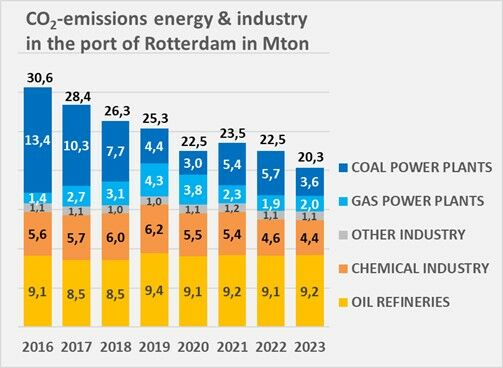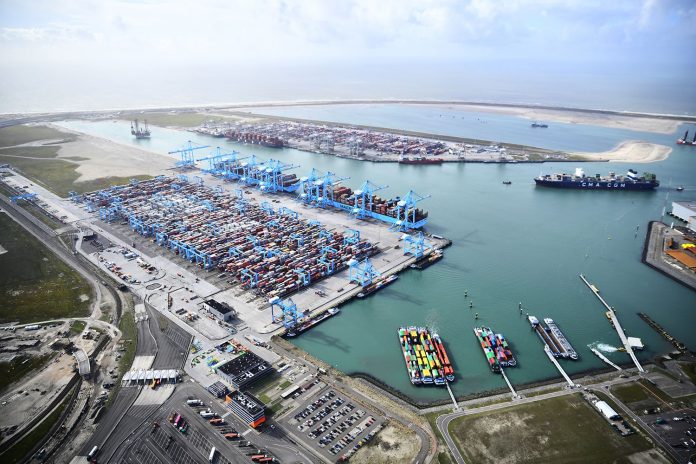In 2023, there was a 10% reduction in CO2 emissions at the port of Rotterdam compared to 2022, amounting to a decrease of 2.2 million tons.
Emissions are now one-third lower than they were in 2016, which marked the peak year for CO2 emissions at the Dutch port. Furthermore, in 2023, CO2 emission levels reached 20.3 million tons, falling below those of the reference year 1990 (20.6 million tons) for the first time.

The primary factor behind the decrease was the diminished CO2 emissions from the two coal-fired power stations located on the Maasvlakte. In 2023, these plants collectively emitted over 2 million tons (38%) less CO2 compared to 2022. Conversely, emissions from the three gas-fired power plants in the port experienced a slight increase of 0.1 million tons.
Collectively, the five energy plants generated 20% less electricity from fossil fuels. Refinery production remained steady due to sustained high demand, resulting in a marginal 0.1 million ton (1%) increase in CO2 emissions. Despite lower gas prices in 2023, production in the chemical industry did not rebound, leading to a further 0.2 million ton (5%) reduction in CO2 emissions.
Nationwide, fossil fuel sources generated 12% less electricity in the Netherlands in 2023. The proportion of electricity generated from renewable sources saw an increase, with wind energy production rising by 35% and solar-powered electricity production increasing by 24%.
According to a statement, to achieve a 55% reduction in CO2 emissions in the port by 2030 compared to 1990, aligning with European and Dutch objectives, the Port of Rotterdam Authority must accomplish a reduction of 9.3 million tons of CO2 by 2030. Currently, the collaborative efforts of industry stakeholders, the Authority, and their partners in the port are expected to result in emissions totalling 8.1 million tons by 2030.
The primary impact stems from the implementation of CO2 capture technology and the discontinuation of coal usage in electricity production. Additionally, company initiatives in the port complex influence emissions. Notably, the production of biofuels contributes to a significant reduction in CO2 emissions beyond the port’s boundaries but may lead to increased emissions within the complex.
The integration of CO2 capture and storage through initiatives like the Porthos project, coupled with hydrogen-based initiatives and the cessation of coal-fired power plant operations, are pivotal in attaining the 2030 emission reduction goals.







